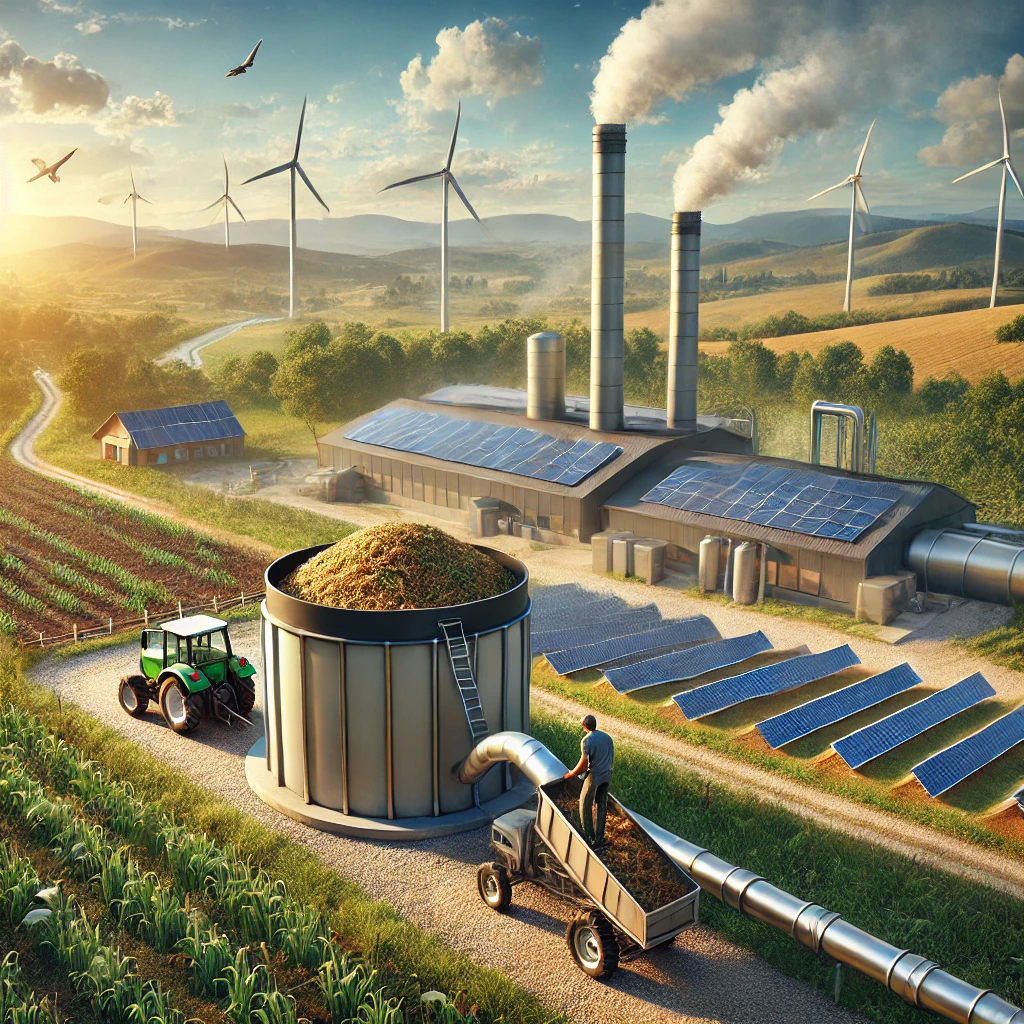In the age of climate change and growing energy demands, the quest for sustainable and clean energy sources has never been more critical. Bioenergy, derived from organic materials, has emerged as a beacon of hope, offering a renewable alternative to fossil fuels. But what exactly is bioenergy, and why is it so important for our future?
What Is Bioenergy?
Bioenergy is energy produced from organic materials, also known as biomass. These materials can include agricultural residues, forest waste, algae, animal manure, and even everyday waste like food scraps. By converting these materials into energy through processes like combustion, fermentation, or gasification, bioenergy provides electricity, heat, and biofuels, which can power everything from homes to vehicles.
The Benefits of Bioenergy
- Renewable and Sustainable: Unlike fossil fuels, biomass resources are naturally replenished. With proper management, bioenergy can be a sustainable energy source for generations.
- Carbon Neutral: When biomass is burned or decomposed, it releases carbon dioxide. However, the same amount of CO2 is absorbed by plants during photosynthesis, making bioenergy a carbon-neutral solution.
- Waste Reduction: Bioenergy offers a practical way to manage waste by converting it into valuable energy, reducing landfill overflow and methane emissions.
- Energy Security: By relying on locally sourced biomass, countries can reduce their dependence on imported fuels and create resilient energy systems.
How Bioenergy Works
Bioenergy can be harnessed through various technologies:
- Biogas Production: Organic waste is broken down in anaerobic digesters to produce biogas, a clean and versatile energy source.
- Bioethanol and Biodiesel: Crops like corn and sugarcane are fermented to produce bioethanol, while oils from plants and animals are processed into biodiesel.
- Combustion: Biomass can be directly burned in power plants to generate electricity and heat.
Challenges to Overcome
While bioenergy holds immense promise, it is not without challenges:
- Land Use: Large-scale bioenergy production can compete with food crops for arable land, raising concerns about food security.
- Efficiency: The energy yield of biomass is often lower compared to fossil fuels, requiring advancements in technology to improve efficiency.
- Environmental Impact: Unsustainable sourcing of biomass can lead to deforestation and habitat loss, undermining its green credentials.
The Future of Bioenergy
With advancements in technology, bioenergy is poised to play a crucial role in the global transition to renewable energy. Innovations like algae-based biofuels, which require minimal land and water, and carbon capture techniques integrated with bioenergy systems (BECCS), could transform bioenergy into a cornerstone of sustainable development.
Bioenergy and You
As individuals, we can support the bioenergy movement by reducing waste, participating in local composting programs, and advocating for policies that promote renewable energy development. Together, we can pave the way for a cleaner, greener future.
Conclusion
Bioenergy represents more than just an alternative energy source—it embodies a shift toward a sustainable, circular economy where waste is transformed into opportunity. By embracing bioenergy, we not only reduce our carbon footprint but also contribute to a resilient and renewable energy system. The future is bright, and bioenergy is lighting the way.
